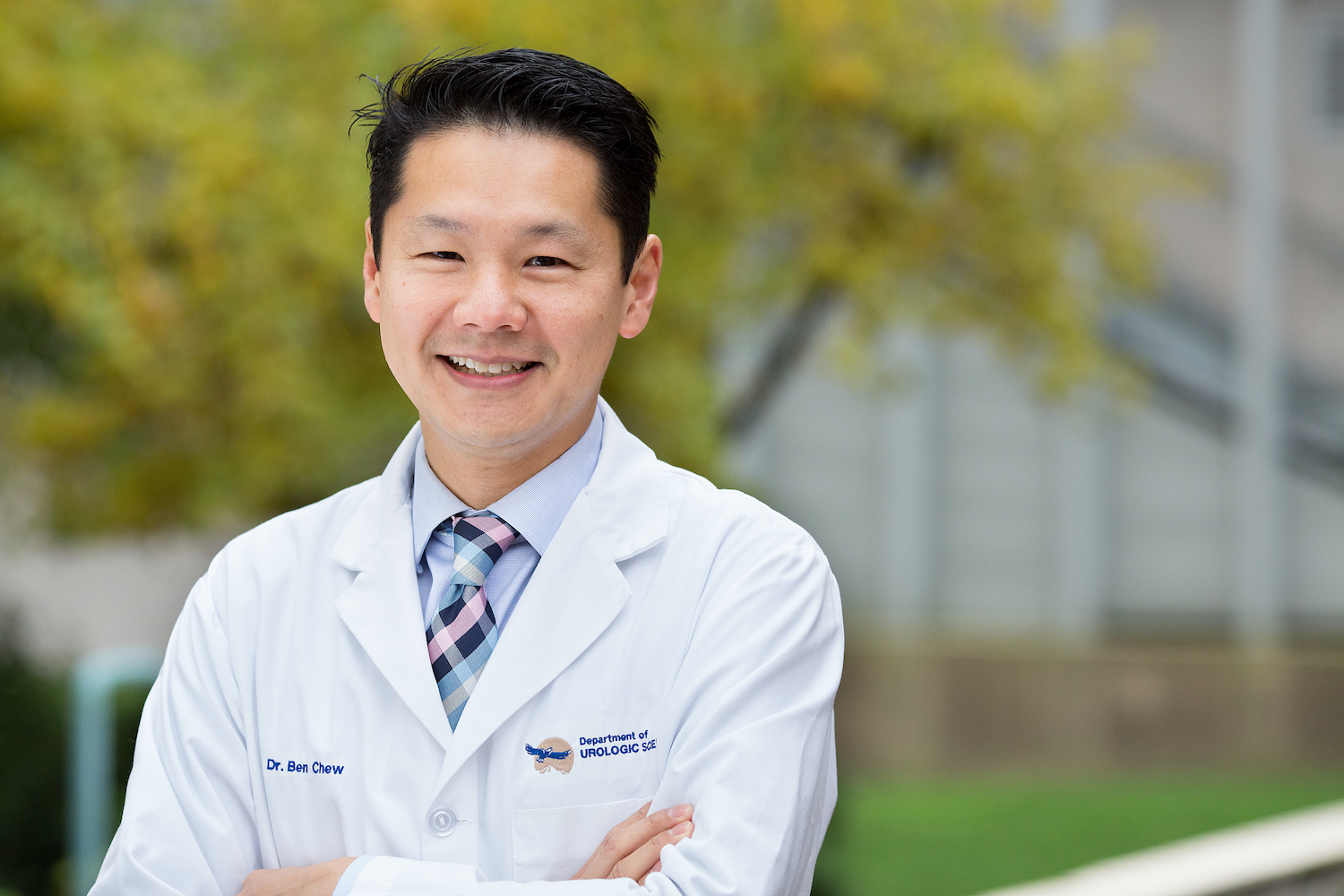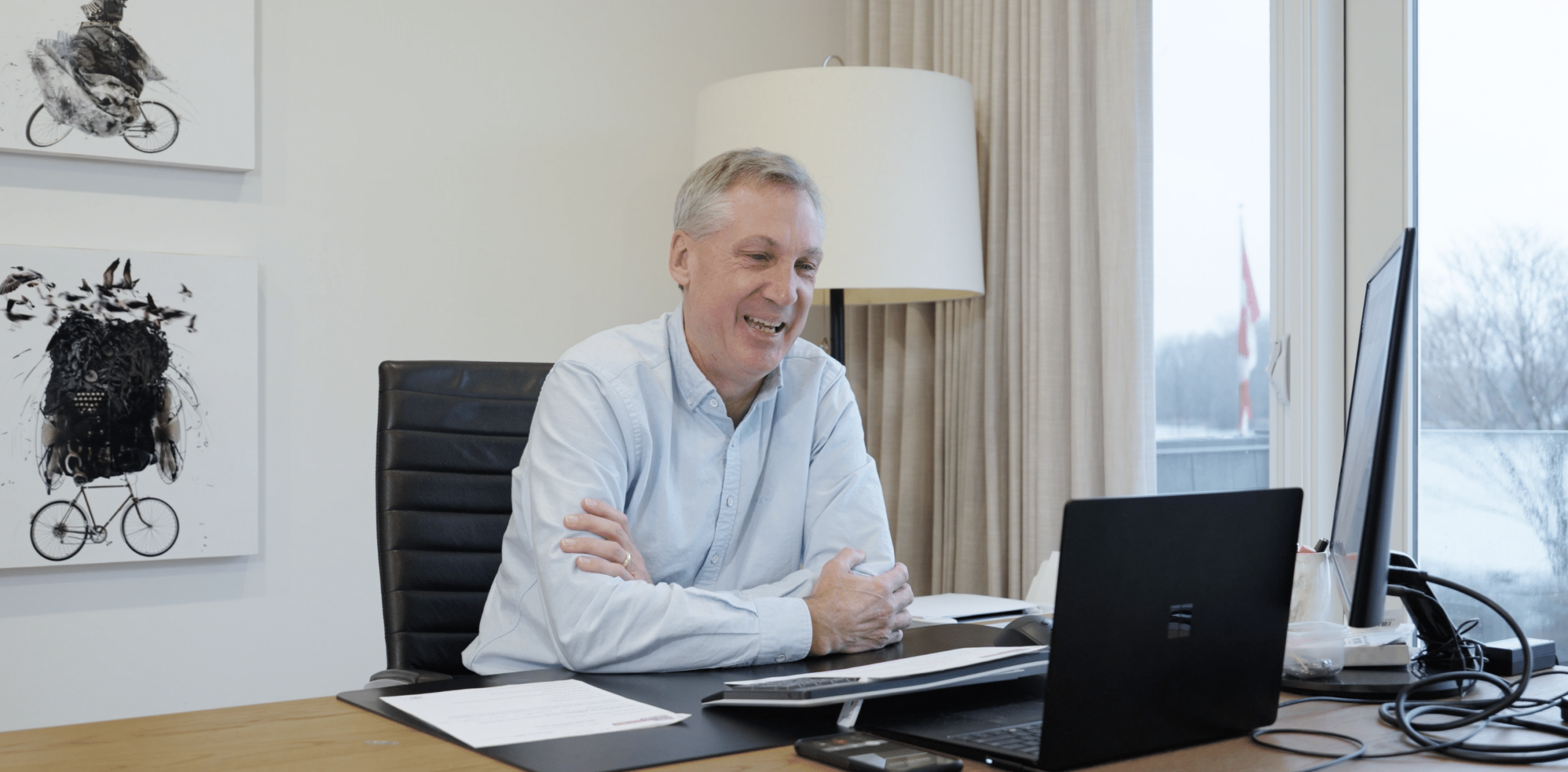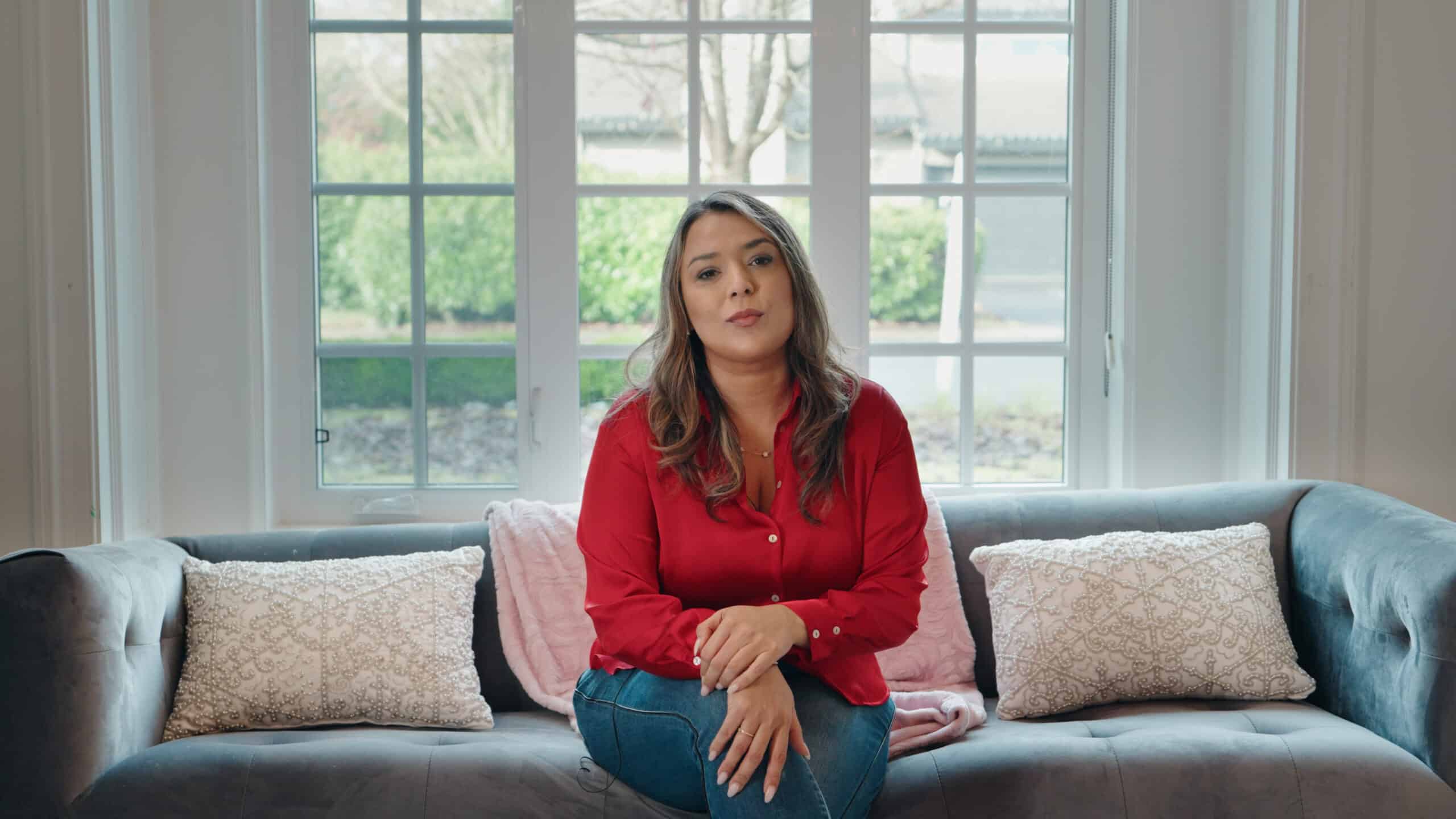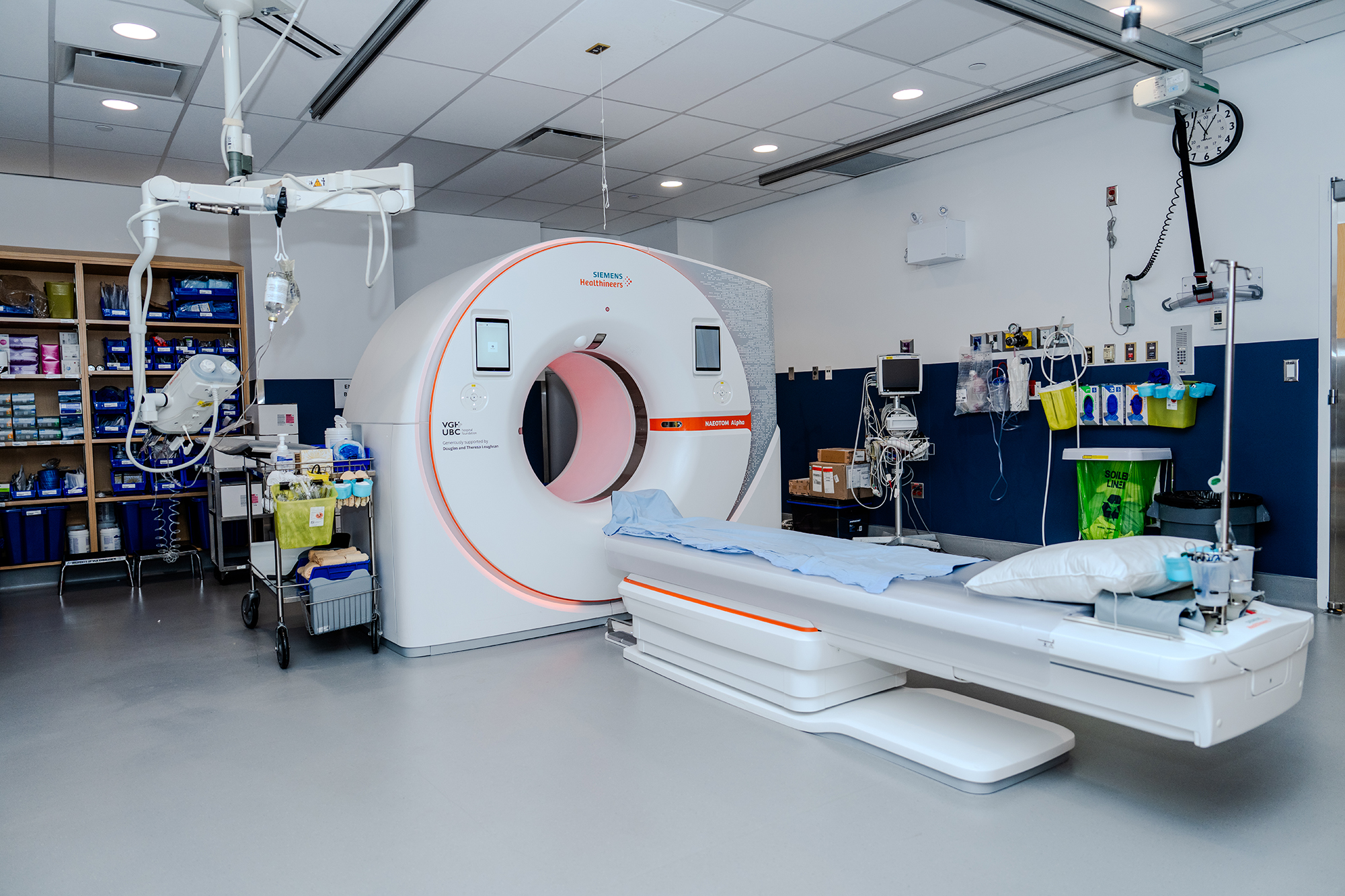An experienced Intensive Care Unit (ICU) nurse in the Lower Mainland, Amanda was used to encountering complex and life-threatening conditions — but nothing prepared her for her own.
It all started during what was otherwise a typical 12 hour shift in the ICU when she experienced some mild pain during voiding. She assumed she had a urinary tract infection (UTI) and planned to swing by the Emergency Department after clocking out to quickly get some medication and then head home.
Only her pain wasn’t as simple as it seemed. After an inconclusive test for a UTI, Amanda was about to leave when her close friend – an Emergency nurse – stopped her. “She said I didn’t look great and asked to run some extra tests to be safe. I was pretty sure I was just tired, but she insisted.” Amanda recalls, “I agreed, but left right after to get some sleep, assuming nothing would come of it.”
It was 3am when a physician called her to say Amanda needed to return to the hospital immediately — something was incredibly wrong. They ran a complete CT scan, and organs across her body lit up with issues. “I couldn’t believe they were my own results, it was so misaligned with how I was feeling – I still felt mostly fine.”
It turned out Amanda did not have a mild UTI, but rather massive kidney stones. On top of progressive chronic kidney disease, she also had interstitial lung disease. The overarching diagnosis was a complex case of an incredibly rare autoimmune disease, a disorder where one’s immune system attacks itself, called Sjögren’s Syndrome. Her care team, made up of her own colleagues, knew that she needed the best of the best and immediately referred her to Dr. Ben Chew at the Vancouver General Hospital Stone Centre.
The internationally acclaimed Stone Centre at VGH integrates cutting-edge research into exceptional care and treatment for patients with kidney stone disease. Dr. Chew is the Centre’s Director of Clinical Research and, with the support of donors, is pioneering novel treatments that are changing the lives of patients like Amanda.
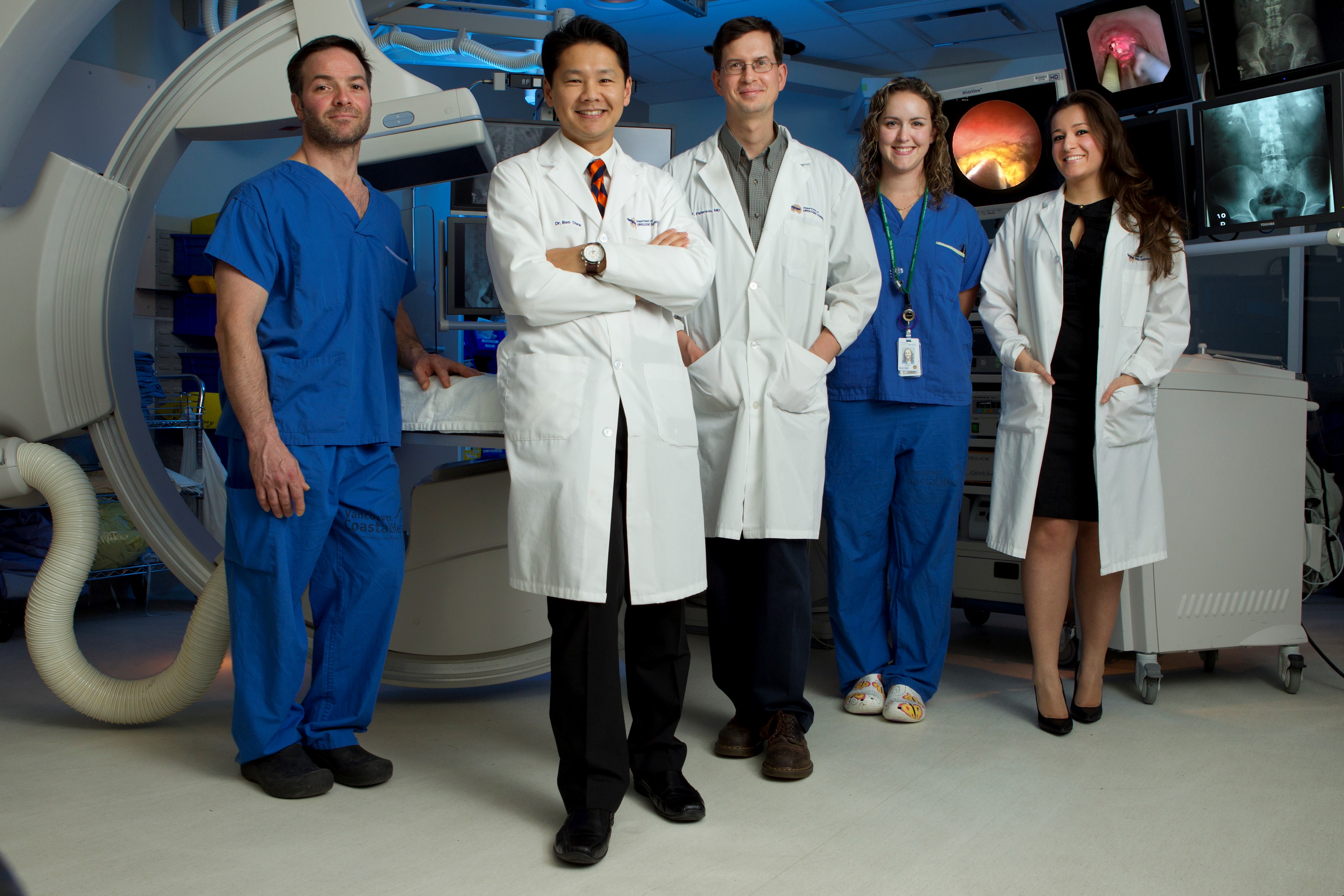
Dr. Chew’s ability to close the gap between bench and bedside to provide Amanda the absolute latest advancements in care is critical to navigating such a unique condition that so little is known about. The reality is that both of her kidneys will eventually need to be replaced. However, Dr. Chew’s expertise is helping to find a way to slow the progression of her kidney disease, hopefully delaying the necessity of such a high-risk double transplant.
To do this, Dr. Chew has performed three surgeries on her current kidneys over the past year and they are currently preparing for one more. While minimally invasive, these procedures have still been extremely challenging for Amanda to recover from given the current strength of her body and her immunocompromised status.
Yet at every step of the way, Amanda has retained hope thanks to the unwavering support of Dr. Chew. As a nurse herself, she is deeply familiar with the difficult task of dividing your attention between patients – you can’t be everywhere at once. But the care Dr. Chew provided,
even calling to check on her when she was admitted as a patient at another hospital, made her feel like she had his undivided attention.
Amanda shares that, “Dr. Chew not only provided his expertise as a surgeon, he delivered top tier continuum of care beyond any possible expectations as a patient and a nurse. I am forever grateful for his initiative and advancement of surgical care.”
Dr. Chew and the exceptional team at the Stone Centre at VGH are shining examples of world-leading care elevated by the generosity of donors who give to the Urological Sciences Campaign. Philanthropy is ensuring that patients like Amanda are the first to benefit from life-saving bench to bedside treatment. It is also championing world-leading experts so they can discover new treatments for diseases without a cure. Together, we can provide the gift of hope for patients who need it most.
Learn more about VGH & UBC Hospital Foundation’s transformational Urological Sciences Campaign.
Share this:
